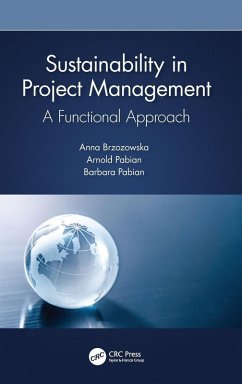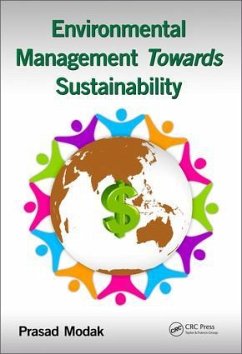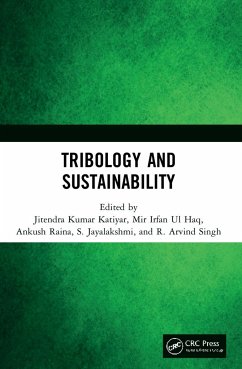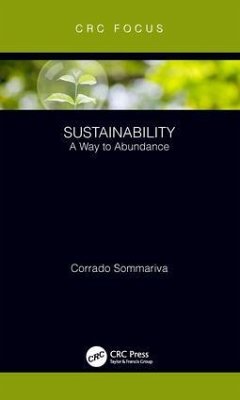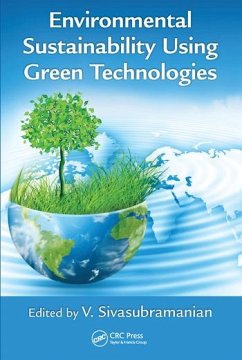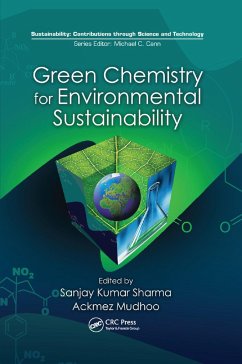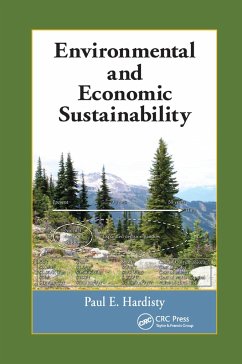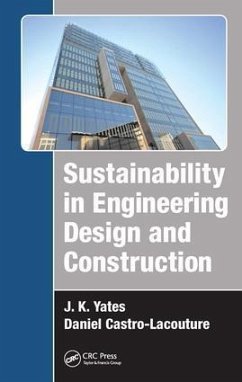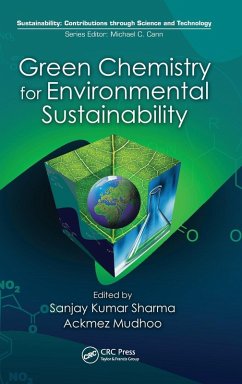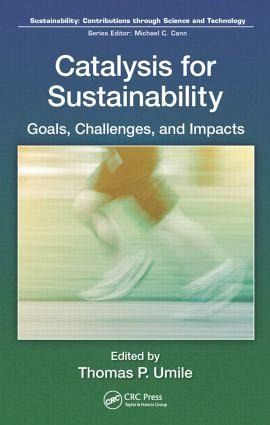
Catalysis for Sustainability
Goals, Challenges, and Impacts
Herausgeber: Umile, Ph. D

PAYBACK Punkte
90 °P sammeln!
Catalysis for Sustainability: Goals, Challenges, and Impacts explores the intersection between catalytic science and sustainable technologies as a means to addressing current economic, social, and environmental problems. These problems include harnessing alternative energy sources, pollution prevention and remediation, and the manufacturing of commodity products. The book describes the nature of catalysis regarding sustainability and presents challenges to accomplishing sustainability as well as the significance of proven or potential success. The contributors have backgrounds in academia and ...
Catalysis for Sustainability: Goals, Challenges, and Impacts explores the intersection between catalytic science and sustainable technologies as a means to addressing current economic, social, and environmental problems. These problems include harnessing alternative energy sources, pollution prevention and remediation, and the manufacturing of commodity products. The book describes the nature of catalysis regarding sustainability and presents challenges to accomplishing sustainability as well as the significance of proven or potential success. The contributors have backgrounds in academia and industry to create a more integrated picture of the issues involving sustainability and catalysis. Broad in scope, the book covers topics such as traditional metal-mediated catalysis, organocatalysis, biocatalysis, biomimicry, and heterogeneous catalysis. It includes chapters dedicated to specific research areas of catalysis as they pertain to their effectiveness, their economic and environmental benefits, and the challenges researchers face in actualizing solutions. It also contains a chapter on the application of life cycle analysis to catalytic processes, demonstrating the need to holistically consider the sustainable impacts of a process. The book can be read in a straightforward fashion or skimmed without forfeiting understanding of the narrative on the strategies and intentions of research and development. Throughout the book the requirements of sustainability are measured by the triple bottom line of environmental, economic, and social impacts. It highlights real-world implementations of catalytic processes in drug development, manufacturing, polymers, and energy. Catalysis for Sustainability: Goals, Challenges, and Impacts is a strong and versatile text. It provides an introduction to the field and the issues with which it is concerned, as well as a detailed and far-reaching discussion on current achievements and future progress.




